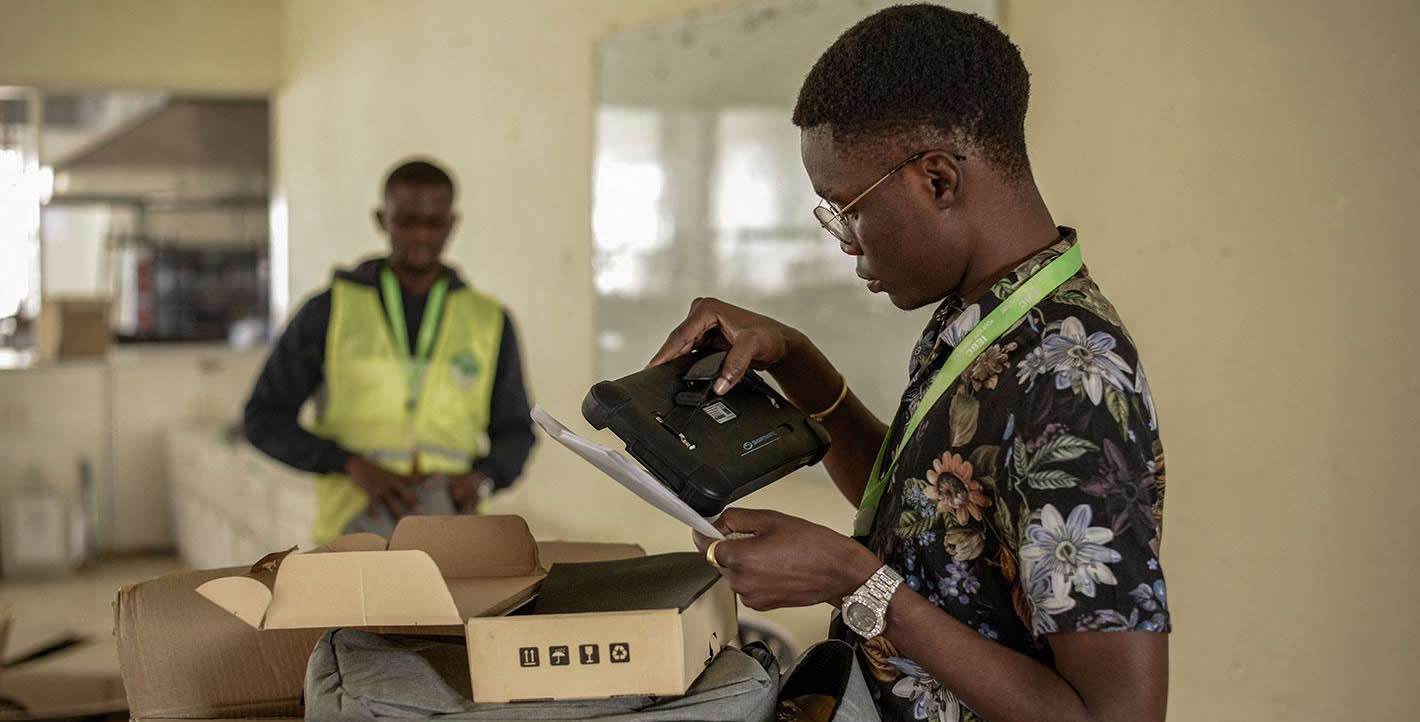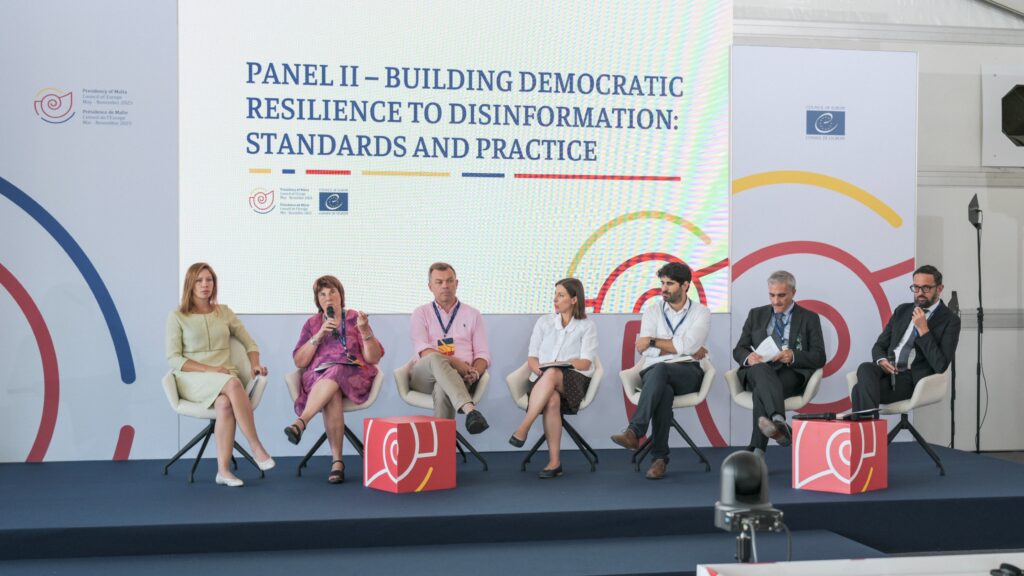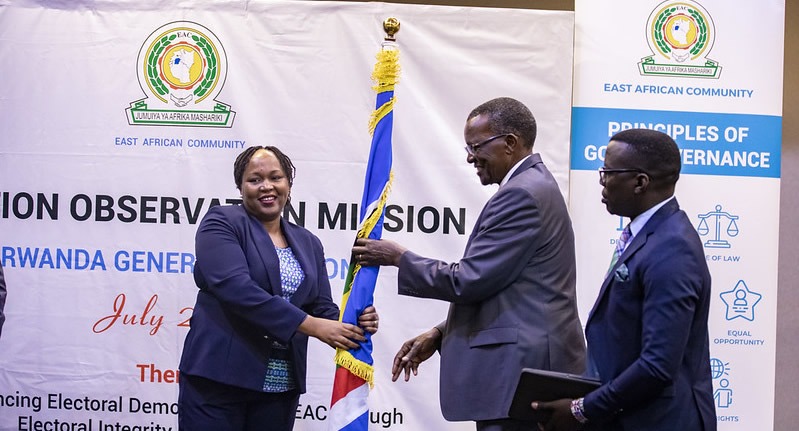
1.0 Introduction
The emergence of digital technologies has fundamentally reshaped political landscapes, creating opportunities for democratic participation while at the same time deepening vulnerabilities. Artificial intelligence (AI), deepfakes, and micro-targeted disinformation have emerged as powerful instruments that can either enhance or destabilize democracy. The Global State of Democracy Report (2021 highlights that more countries than ever are undergoing “democratic erosion,” with digitally engineered electoral interference acting as a major driver.
In Eastern Africa, these risks are becoming increasingly visible as Kenya, Uganda, and Tanzania approach critical elections in 2025, 2026, and 2027 respectively. Electoral manipulation now extends far beyond traditional forms of vote rigging, infiltrating digital ecosystems where narratives can be manufactured and amplified within seconds. Wardle and Derakhshan (2017) introduced the concept of “information disorder,” encompassing misinformation, disinformation, and malinformation, to capture these dynamics. The 2022 Kenyan elections and Uganda’s 2021 polls provided striking evidence of how AI-driven propaganda, deepfake technologies, and even internet shutdowns can undermine public trust in both electoral management bodies and the media.
This commentary analyzes the risks of AI-driven misinformation and election interference in Eastern Africa, outlines emerging issues, develops foresight scenarios, and proposes anticipatory policy strategies to safeguard electoral integrity in the face of digital authoritarianism.
2.0 Key Issues
2.1 AI-Driven Disinformation and Deepfakes

The rapid spread of AI-generated disinformation represents a profound threat to electoral integrity in Eastern Africa. Social media platforms such as WhatsApp, TikTok, and Facebook provide fertile ground for the circulation of deepfakes and fabricated narratives that inflame ethnic divisions and distort political discourse. AI makes it possible to create convincing fake speeches, videos, or endorsements, which are strategically released during sensitive election periods. In Kenya’s 2022 elections, for example, fabricated videos and AI-driven bot accounts were reported to have shaped public narratives in ways that weakened trust in journalism and electoral institutions. Beyond the technical manipulation, political actors increasingly exploit the prevalence of disinformation to discredit authentic investigative reporting, dismissing it as fake. This intersection of advanced technologies and political opportunism generates a cycle of distrust, intensifies polarization, and erodes the credibility of both the media and democratic institutions, creating conditions ripe for violence and electoral insecurity.
2.2 Internet Shutdowns and Digital Authoritarianism
Governments in Eastern Africa have increasingly deployed internet shutdowns as instruments of digital authoritarianism. Uganda’s 2021 elections witnessed a sweeping social media blackout, officially justified as a response to disinformation but ultimately serving to silence dissenting voices and restrict citizens’ access to reliable information. Tanzania has similarly weaponized restrictive laws such as the Cybercrimes Act to suppress opposition narratives and limit online freedoms. These shutdowns curtail democratic participation, undermine freedom of expression, and damage electoral legitimacy. Citizens often attempt to bypass restrictions using VPNs, but such tools provide only limited relief. Moreover, the economic disruption that accompanies shutdowns further frustrates the public and erodes trust in state institutions. As Marchant and Stremlau (2020) notes, the growing normalization of shutdowns reflects a troubling authoritarian turn in global governance. In Eastern Africa, these practices intensify instability, delegitimizes incumbents, and underscore the urgent need to balance cybersecurity, free expression, and electoral accountability.

2.3 Foreign Information Manipulation and Interference (FIMI)
Foreign actors are increasingly influencing Eastern African elections through information manipulation. Russia and China, for instance, have been accused of deploying troll farms, automated bots, and state-sponsored media to amplify regime-friendly narratives. Western governments, on the other hand, have been linked to “pro-democracy” campaigns designed to align electoral outcomes with their strategic interests. In Kenya, the involvement of Cambridge Analytica in 2017 exposed the vulnerability of democratic institutions to foreign-engineered propaganda and data-driven micro-targeting. Similarly, Russian-linked accounts amplified pro-Museveni narratives during Uganda’s 2021 elections, while Gulf states allegedly funded partisan disinformation during Ethiopia’s 2021 polls. These interventions heighten domestic polarization and compromise national sovereignty, making electoral outcomes appear externally influenced rather than locally determined. As McKay (2023) argues, foreign information manipulation threatens regional security by fostering dependency, undermining trust in democratic norms, and embedding external influence into the political fabric of fragile states.
2.4 Erosion of Public Trust in Media and Electoral Bodies
Perhaps the most enduring challenge posed by digital misinformation is the erosion of trust in media institutions and electoral bodies. When authentic reporting is dismissed as deepfakes or disinformation, journalists lose credibility and the public struggles to distinguish truth from fabrication. Electoral commissions such as Kenya’s Independent Electoral and Boundaries Commission (IEBC) already face crises of legitimacy, as evidenced by disputes in the 2017 and 2022 elections. AI-driven disinformation exacerbates these tensions by casting doubt on official results and sowing confusion among voters. At the same time, state-linked propaganda and censorship further undermine independent journalism, leaving citizens vulnerable to unverified narratives circulating online. Regional organizations like the East African Community (EAC) also see their credibility weakened, reducing their ability to enforce electoral integrity frameworks. In such an environment, disinformation networks thrive, democratic accountability declines, and the conditions for civil unrest and authoritarian consolidation expand. Restoring institutional trust is therefore fundamental to resilience.
3.0 Conclusion
The spread of new digital technologies to include, AI-driven disinformation, deepfakes, occasioning internet shutdowns during elections and foreign interference presents a defining challenge for electoral integrity in Eastern Africa. As the region prepares for pivotal elections between 2025 and 2027, these dynamics threaten to deepen polarization, discredit institutions, and entrench authoritarian practices. The risks are real, but they are not insurmountable. The policy recommendations outlined in this commentary demonstrates that resilience can be built through investments in media literacy, responsible regulation of AI and other digital platforms, regional cooperation, and strengthened independent media. These strategies ensure that technology is harnessed to protect rather than undermine democracy. Eastern Africa’s stability will depend on proactive and anticipatory governance that upholds freedom of expression while safeguarding information integrity. Ultimately, credible elections in the digital age require not only technological safeguards but also societal commitment to defending democratic accountability against the growing tide of digital authoritarianism.
4.0 Policy Recommendations

4.1 Strengthening Media and Digital Literacy
Building resilience through media and digital literacy is essential for countering electoral disinformation. Research shows that societies with higher levels of media literacy are less vulnerable to manipulation. Governments, civil society, and schools should therefore invest in curricula that teach critical thinking, fact-checking, and source verification. Initiatives must prioritize youth and rural communities, who are often most affected by viral misinformation. Partnerships with fact-checking institutions such as Africa Check can strengthen real-time monitoring of false content. Community radio and local-language platforms should be mobilized to ensure broad accessibility. By equipping citizens to recognize and reject disinformation, Eastern Africa can reduce the impact of propaganda, mitigate external manipulation, and strengthen democratic resilience against authoritarian practices.
4.2 Regulating AI and Online Platforms
A regional approach to regulating AI and digital platforms is critical to preserving electoral integrity. At present, regulations in Eastern Africa remain fragmented and are often designed to consolidate state power rather than promote democratic transparency. A Declaration on Information Integrity Online, coordinated by the Eastern Africa Community, could set out clear principles for responsible AI use, political advertising transparency, and disclosure of AI-generated content. Regulation should also compel platforms to improve content moderation while protecting free expression. Lessons from Europe’s Code of Practice on Disinformation show that multistakeholder frameworks can balance innovation and rights. Anticipatory governance that enforces transparency and accountability without serving as a tool for censorship is central to ensuring that technology strengthens rather than undermines democratic accountability.

4.3 Enhancing Regional Cooperation on Electoral Integrity
Disinformation’s cross-border nature makes regional cooperation indispensable. The Eastern Africa Community could establish a regional electoral integrity task force mandated to monitor online manipulation, coordinate fact-checking efforts, and share detection technologies. Pooling resources would also help member states resist foreign information manipulation campaigns, which often exploit regional weaknesses. Inspiration can be drawn from the European Union’s Code of Practice, which demonstrates the potential of multilateral frameworks to curb online disinformation. Regional collaboration with the African Union could further standardize digital campaigning rules and strengthen election monitoring. No single country can counter AI-driven interference in isolation. By institutionalizing cooperation, Eastern Africa can safeguard democratic elections, protect information integrity, and rebuild public trust in its democratic institutions.
4.4 Supporting Independent and Public Service Media
Investing in independent and public service media is a cornerstone of electoral resilience. Surveys consistently show that traditional media remain more trusted in Africa than social platforms, underscoring their importance in countering disinformation. Supporting investigative journalism ensures that citizens receive reliable information while reducing dependence on social media for political news. Public broadcasters must be insulated from political capture and equipped with tools to detect emerging threats such as deepfakes. Financial sustainability models should be developed to reduce reliance on political patronage. Expanding multilingual and community-based programming enhances inclusivity across diverse populations. Strengthening independent media institutions not only restores public trust but also ensures that citizens are empowered with accurate information to make informed electoral decisions.
5.0 References
Global State of Democracy Report (2021). International IDEA. https://www.idea.int/gsod
Wardle, C., & Derakhshan, H. (2017). Information disorder: Toward an interdisciplinary framework. Council of Europe.
https://rm.coe.int/information-disorder-toward-an-interdisciplinary-framework-for-researc/168076277c
Marchant, E., & Stremlau, N. (2020). Global internet shutdowns: A comparative analysis. Journal of Cyber Policy, 5(3), 324–345. https://doi.org/10.1080/23738871.2020.1842898
McKay, R. (2023). Foreign interference in African elections: Case studies and countermeasures. Democracy and Security, 19(1).
https://doi.org/10.1080/17419166.2023.2157680
Nyabola, N. (2018, March 22). Politics in the digital age: Cambridge Analytica in Kenya. Al Jazeera.
https://www.aljazeera.com/opinions/2018/3/22/politics-in-the-digital-age-cambridge-analytica-in-kenya
Africa Check. (n.d.). Africa’s leading fact-checking organisation. https://africacheck.org/
Independent Electoral and Boundaries Commission (IEBC), Kenya. Official site.
https://www.iebc.or.ke/
East African Community (EAC). Official site. https://www.eac.int/
European Commission. Code of Practice on Disinformation.
https://digital-strategy.ec.europa.eu/en/policies/code-practice-disinformation
